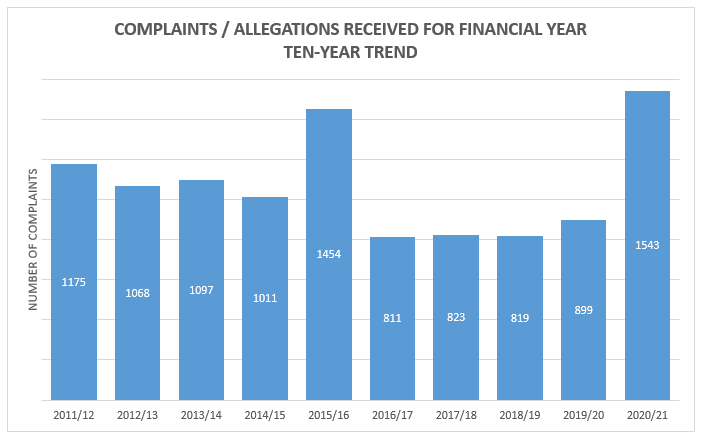Council Complaint Statistics
The complaints we receive about councils help us to proactively monitor council operations and identify emerging issues and trends. Analysis of this information enables us to better direct our resources. Analysis also helps us to identify the need for changes to local government legislation or policy or a need for training, guidance or other best practice advice.
For information on council complaints by financial year, see below.
- Complaint statistics 2020-21
- Complaint statistics 2019-20
- Complaint statistics 2018-19
- Complaint statistics 2017-18
- Complaint statistics 2016-17
- Complaint statistics 2015-16
- Complaint statistics 2014-15
- Complaint statistics 2013-14
- Complaint statistics 2012-13
- Complaint statistics 2011-12
- Complaint statistics 2010-11

